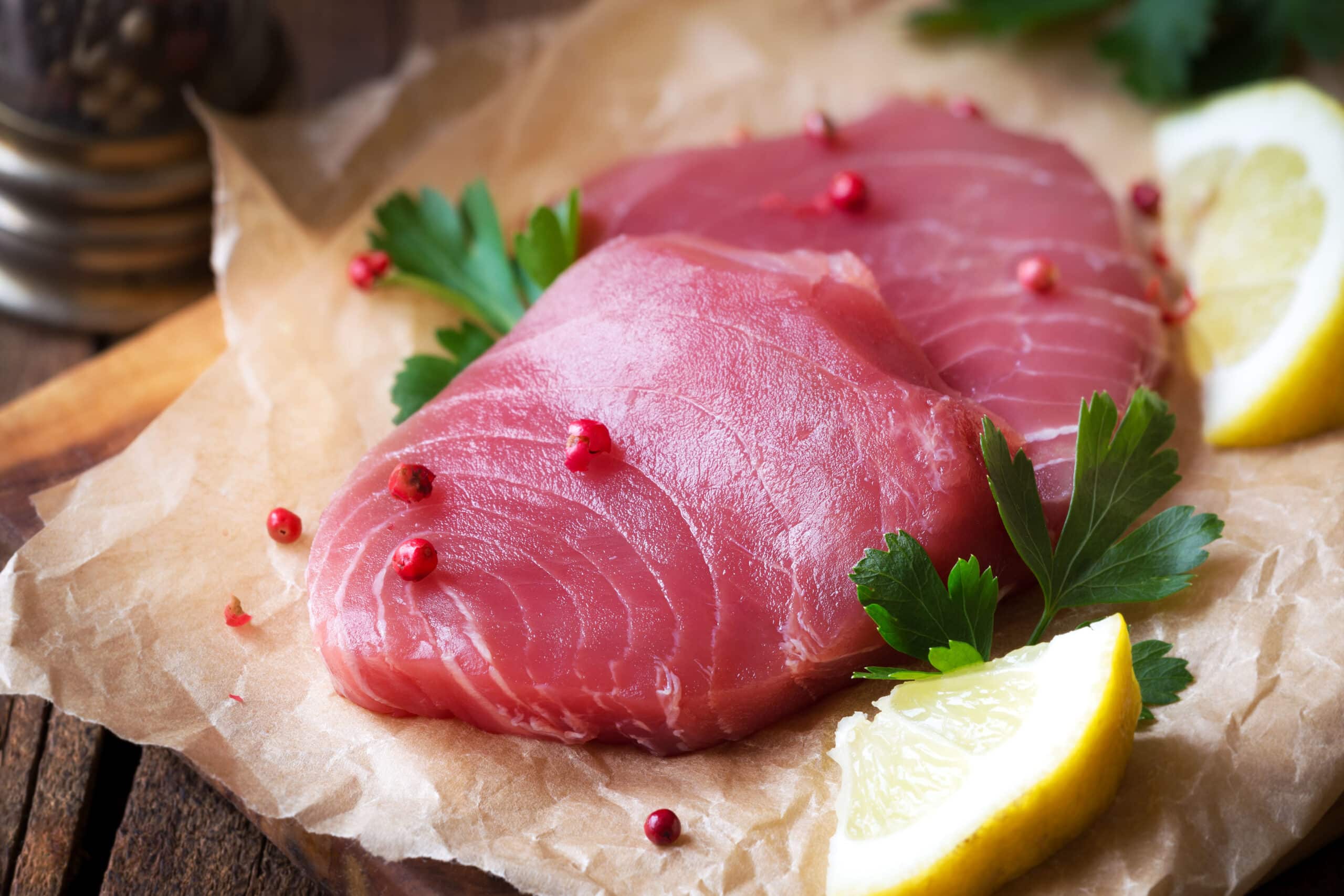The tuna diet is a low calorie, low carb, high protein, short term eating plan that involves consuming mainly tuna and water to promote rapid weight loss at the expense of nutrient deficiency and calorie restriction; after 3 days you can then add low fat dairy products, poultry, vegetables, and fruit, but during this period your macronutrient ratio should be 40% protein, 30% carbs, and 30% fat.
This is basically a fad crash diet intended to promote breaking bad dietary habits and to encourage quick weight loss, but it isn’t supported by any scientific research. While it may be easy to follow there is no real set duration, you may be meant to follow it until you reach your goal, and repeat from time to time, it is not clear.
The tuna itself must be plain, without any mayonnaise, butter, oil, vinegar, or spices, and provide you with 1.5 grams of protein per every kilogram of body weight each day. You must also drink 34 ounces of water every day, a serving of Metamucil each night for fiber, and vitamins, minerals, and branched chain amino acid supplements. After 3 days you can add steamed non starchy veggies, chicken, low fat dairy, fruit, and leafy greens. You may not consume grains and starches, meat, legumes, nuts, seeds, full fat dairy, soda, sugary beverages or any beverage other than water while on the tuna diet.
This is a strict regimen, and you can find several variations of it on many websites suggesting they are better than the rest. Many of the adapted versions allow for additional foods such as starchy veggies, whole grains, unsweetened beverages, and other protein such as eggs., but even with the variations none of these plans are backed by scientific research.
Tuna diets are very restrictive, and this is why they cause rapid weight loss, but these restrictive diets can actually harm your health. This severe calorie restriction slows metabolism and impairs muscle mass just for starters, and it can trigger severe hunger and results in weight gain when you stop the plan. Research suggests that these diets are unsustainable and will fail to improve body composition.
Tuna is a healthy low calorie source of protein, in moderation, it is rich in omega-3 fatty acids that aid your heart, brain, and immune system, and it is also rich in selenium that has anti-inflammatory and antioxidant effects while promoting thyroid function. But tuna does not provide all of the nutrients the body needs, meaning the risks following a tuna diet carries outweigh any potential benefit.
Following a tuna diet has several downsides due to the restrictive nature as well as the risk of mercury poisoning. Tuna does not have enough calories to support most adults which may result in slower metabolism, loss of muscle mass, nutrient deficiency, and hunger. The EPA suggest that tuna should be limited to 12 ounces per week, any more increases the risk for mercury poisoning, and tuna varieties such as yellowfin, bigeye, and albacore have higher mercury levels and should be avoided. Even eating only light tuna on this diet a 150 pound person would intake 68 mcg of mercury which is 10 times the recommended limit.
Fad restrictive diets such as this have been shown to be difficult to stick with and have questionable long term effects; focusing on short term weight loss is unsustainable and likely hampers long term success which requires making changes in habits and lifestyle needed to achieve long term weight loss.
The tuna diet has no scientific research to support it, and the downsides far outweigh any potential benefit, it is highly unsustainable, unrealistic, and unsafe to follow due to restrictions. This diet also can’t be tailored to meet an individual’s needs and differences.
For better and lasting results one would do far better by following a healthy balanced diet that contains sufficient calories to meet the individuals needs which involves eating plenty of whole, unprocessed foods and considering making diet and lifestyle changes to support and assist in your weight loss goals such as physical activity, managing stress, and getting enough sleep.




